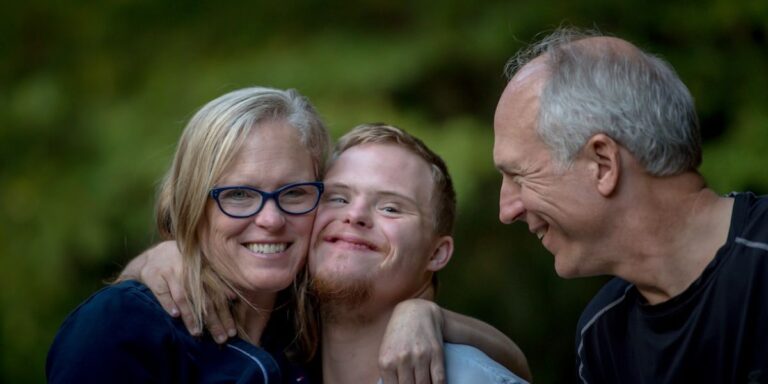
You walk into work, card in hand, ready to start your shift. The doors swish open before you—another day in health and social care awaits. You navigate the corridors that are familiar yet always full of surprises. Every day, you’re tasked with meeting the multifaceted needs of individuals who rely on your expertise, empathy, and support. But as you interact with both younger and older colleagues, a question that’s often pondered emerges: does age really matter in health and social care?
Let’s be clear—you are part of an industry where diversity is not just present; it’s essential. From fresh-faced graduates to seasoned veterans, health and social care teams comprise a wide age range.
The question of whether age matters when working in health and social care often arises in conversations about workforce diversity, experience, and adaptability. Age can influence various aspects of this sector, both positively and negatively. Let’s explore how age impacts professionals in health and social care, whether they are younger or older individuals.
Skills and Experience
Age can affect the skills and experience a person brings to health and social care. Older workers often have years of experience, which can be extremely valuable. They may have developed expertise in handling complex cases or helping people with unique needs. Through their career journeys, they are likely to have honed skills such as communication, critical thinking, and empathy.
Younger workers may not have the same level of experience but can contribute new ideas and perspectives. They are more likely to be familiar with current practices, technologies, and trends in the sector. Their willingness to learn and adapt can add fresh energy to the workplace.
How Age Impacts Physical Demands
Health and social care jobs often require physical work, such as lifting patients, moving equipment, or long hours on your feet. Age may influence how well individuals cope with these demands. Younger workers often have greater physical stamina, making them more suited to these challenges. Older workers, in contrast, may sometimes face physical limitations.
However, age alone does not determine a person’s ability to perform physically demanding tasks. Fitness, training, and maintaining good health can equally impact performance. Many older professionals find ways to work safely and efficiently despite physical changes.
Professional Relationships
Age can also play a role in building relationships with clients, colleagues, and managers. In health and social care, professionals need to earn the trust of patients and families. Some clients may feel more comfortable working with older carers who seem experienced and confident. Others might connect better with younger professionals who bring energy and enthusiasm.
For colleagues, age differences can result in mentorship opportunities. Older workers can offer advice and guidance to those just starting their careers. Similarly, younger workers may teach older colleagues about new approaches or technologies.
Adapting to Change
The health and social care sector frequently evolves, with changes in regulations, procedures, and technologies influencing daily work. Age can affect how individuals respond to these changes. Younger professionals may adapt quickly to new systems, such as electronic health records or specialised care tools. Older workers might need more time to adjust but often bring valuable insights during transitions.
Flexibility is key to thriving in this environment, regardless of age. Training programmes and support can help people of all ages keep up with changes across the sector.
Training and Education
Training is an important part of health and social care work. Workers need to stay informed about best practices, laws, and medical advancements. Age may influence a person’s approach to learning.
Younger professionals tend to be in education for longer periods, making them more comfortable with online courses or self-paced learning materials. Older workers may prefer more traditional, in-person training methods. Employers should consider offering a mix of learning opportunities to suit workers across different age groups.
Age and Career Progression
Career progression in health and social care isn’t limited by age, but it can be influenced by it. Younger staff often focus on gaining promotions or building their skills as they start their careers. They may actively seek new roles or advanced training opportunities.
Older workers might prioritise stability over frequent changes. Some may want to focus on roles they excel in or areas they find rewarding. However, age should not stop anyone from aiming to grow professionally or take on senior positions.
Perceptions of Age
Age-related bias can affect the workplace in health and social care. Younger workers might face doubts about their maturity or readiness for the responsibilities involved. On the other hand, older professionals may encounter stereotypes about their ability to learn new technologies or adapt to modern practices.
These perceptions may not reflect reality. Organisations should challenge age bias and encourage fair treatment of all workers. Creating environments where staff of any age feel valued can improve job satisfaction and teamwork.
Legal Protection and Workforce Diversity
In the UK, discrimination due to age is illegal under the Equality Act 2010. Employers must make sure staff of all ages have fair access to job opportunities and receive equal treatment. This creates a diverse workforce, bringing together the strengths of both older and younger workers.
Diversity is an advantage in health and social care. Different age groups bring varied perspectives, helping organisations solve problems creatively. They also offer broad insights into the needs of clients, whether younger or older.
The Benefit of Mixed-Age Teams
Mixed-age teams can be highly effective. By combining the skills and perspectives of younger and older workers, organisations can achieve more. Staff can learn from one another and support each other’s strengths.
For example:
- Younger staff might introduce innovative ideas, like using digital tools for record-keeping.
- Older staff can share methods built on years of experience, such as techniques for communicating with clients.
This collaboration ensures clients receive high-quality care.
Age and Client Preferences
Clients’ age preferences can influence their care. Some patients may prefer carers who are closer in age to them. They might feel they have common ground and shared experiences. For example, older patients might feel more comfortable working with older carers who understand their concerns. Similarly, younger clients may favour carers who relate to their generation.
Health and social care organisations must respect these preferences while matching workers with clients. Flexibility allows services to meet these preferences without ignoring equality policies.
Remaining Fit for Work
Sustaining a long career in health and social care requires staying fit and healthy. People in this sector can experience emotional stress and physical strain. Regardless of age, workers should prioritise looking after their wellbeing.
Employers can support staff by offering counselling services, ergonomics training, and regular breaks. Promoting a healthy working environment can keep workers motivated, regardless of their age.
Retirement Options
Older workers may consider part-time or reduced hours as they approach retirement. This gives them the flexibility to gradually step back while staying active in their roles.
Flexible retirement options help organisations retain skilled workers for longer. It can also prevent the loss of expertise when older staff leave full-time posts.
Experience vs. Fresh Perspective
If you’ve been around the block a few times, your rich reservoir of experience provides invaluable insights into patient care. Your years on the job teach resilience, adaptability, and perhaps most importantly, how to manage the unexpected while keeping a cool head.
On the flip side, if you’re younger or newer to the sector, don’t underestimate your worth. You bring innovation to the table—and fresh eyes often see solutions that others might miss. Blending different generations leads to sharing knowledge—a symbiosis where traditional methods meet cutting-edge techniques.
Digital Natives vs. Digital Learners
In today’s tech-savvy world, comfort with technology can make a significant difference in efficiency and patient engagement. Younger staff members may have grown up with this tech—they’re digital natives—and naturally incorporate it into their work routine.
But let’s shed light on something quite remarkable about those who didn’t grow up surrounded by such technology—your propensity to learn new systems can be just as strong or stronger because it stems from necessity rather than habit.
The Role of Training and Qualifications in Health and Social Care
You clock in, ready for another day in health and social care. Today is not just any day, though; it’s the beginning of a training course. Whether you’re twenty-two or sixty-two, these courses are milestones on your professional journey.
Continual development through care training and qualifications keeps you at the forefront of industry standards, regardless of age. Your commitment to learning is essential for delivering high-quality care, ensuring you remain competent and confident in your abilities.
Adaptability Across Ages
You’ve heard stories from colleagues who remember times before electronic records or apps—when paperwork was king! Those who’ve seen this transition understand change is constant within health and social care—you expect it.
Young professionals embark on their careers understanding they need to stay adaptable—the learning doesn’t stop once they graduate; it starts.
Energy and Stability
There is no denying that energy levels often correlate with age—but energy comes in various forms across our lifespan. Younger workers may have physical stamina; however, stability isn’t just having energy—it’s knowing how to harness it effectively over long shifts or during crises—which can come from life experience more common in older workers.
Final Thoughts
Age does matter in health and social care, but it should not be a barrier. Professionals of all ages can make meaningful contributions. Younger and older workers bring different strengths to their roles, enhancing the quality of care provided. Organisations should celebrate these differences and invest in inclusive, supportive environments. With the right approach, workers across all age groups can thrive and deliver exceptional support to those in need.
Subscribe to Newsletter
Get the latest news and updates from Care Learning and be first to know about our free courses when they launch.






